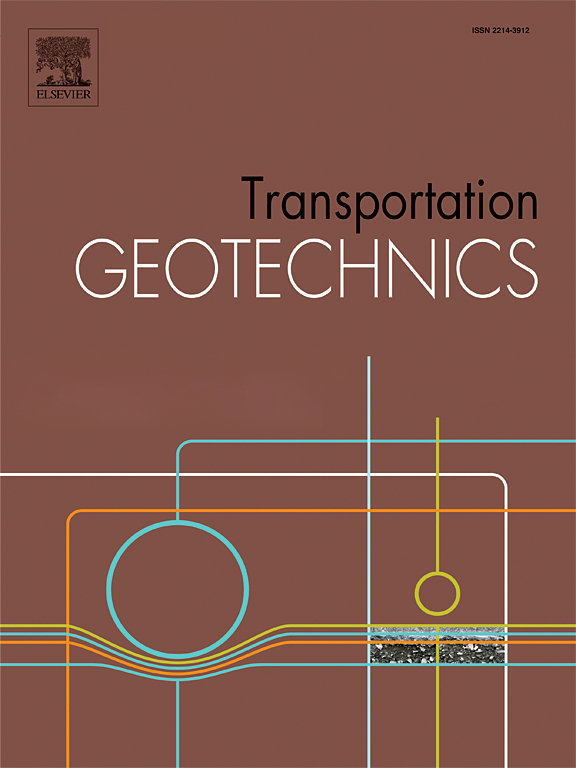利用可解释机器学习预测纳米二氧化硅和生物炭稳定软弱地基土的加州承载比
IF 4.9
2区 工程技术
Q1 ENGINEERING, CIVIL
引用次数: 0
摘要
本研究采用可解释的机器学习(ML)模型,对经过纳米二氧化硅和生物炭稳定处理的软土地基的加州承载比(CBR)进行预测。研究包括通过实验确定用不同比例的纳米二氧化硅和生物炭处理过的软弱地基土的 CBR 值。这些数据以及粒度分布、含水量、纳米二氧化硅和生物炭含量等土壤特性可作为训练和测试各种 ML 模型的输入。在评估的 12 个 ML 模型中,梯度提升回归模型表现出卓越的性能,实现了高精确度(R2 = 0.92)和低误差率(MSE = 0.45)。利用可解释人工智能(XAI)技术,可以深入了解影响 CBR 预测的重要输入特征,从而提高模型的可解释性和可靠性。研究结果突出显示了机器智能在准确预测纳米二氧化硅和生物炭稳定软土地基 CBR 值方面的功效。这项研究对岩土工程具有重要意义,它提供了一种以数据为驱动的方法来优化土壤稳定措施,促进基础设施的可持续发展。本文章由计算机程序翻译,如有差异,请以英文原文为准。
Prediction of California Bearing Ratio of nano-silica and bio-char stabilized soft sub-grade soils using explainable machine learning
This study investigates the prediction of the California Bearing Ratio (CBR) for nano-silica and bio-char stabilized soft sub-grade soils using explainable machine learning (ML) models. The research involves experimentally determining CBR values for soft sub-grade soils treated with varying proportions of nano-silica and bio-char. This data, along with soil properties such as grain size distribution, moisture content, and nano-silica and bio-char content, serve as inputs for training and testing various ML models. Among the 12 ML models evaluated, the Gradient Boosting Regression exhibits superior performance, achieving high accuracy (R2 = 0.92) and low error rates (MSE = 0.45). The utilization of explainable artificial intelligence (XAI) techniques provides insight into the significant input features influencing CBR predictions, thereby enhancing the interpretability and reliability of the models.. The research findings, highlight the efficacy of machine intelligence in accurately predicting the CBR values of nano-silica and bio-char stabilized soft sub-grade soils. This research has significant implications for geotechnical engineering, offering a data-driven methodology to optimize soil stabilization practices and contribute to sustainable infrastructure development.
求助全文
通过发布文献求助,成功后即可免费获取论文全文。
去求助
来源期刊

Transportation Geotechnics
Social Sciences-Transportation
CiteScore
8.10
自引率
11.30%
发文量
194
审稿时长
51 days
期刊介绍:
Transportation Geotechnics is a journal dedicated to publishing high-quality, theoretical, and applied papers that cover all facets of geotechnics for transportation infrastructure such as roads, highways, railways, underground railways, airfields, and waterways. The journal places a special emphasis on case studies that present original work relevant to the sustainable construction of transportation infrastructure. The scope of topics it addresses includes the geotechnical properties of geomaterials for sustainable and rational design and construction, the behavior of compacted and stabilized geomaterials, the use of geosynthetics and reinforcement in constructed layers and interlayers, ground improvement and slope stability for transportation infrastructures, compaction technology and management, maintenance technology, the impact of climate, embankments for highways and high-speed trains, transition zones, dredging, underwater geotechnics for infrastructure purposes, and the modeling of multi-layered structures and supporting ground under dynamic and repeated loads.
 求助内容:
求助内容: 应助结果提醒方式:
应助结果提醒方式:


